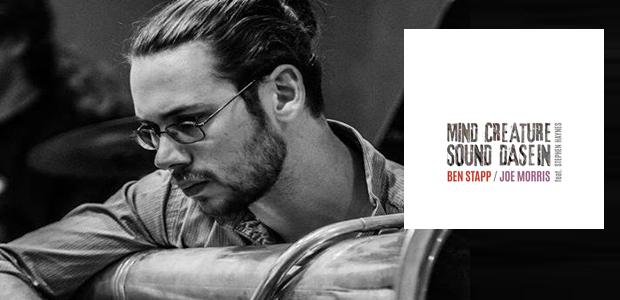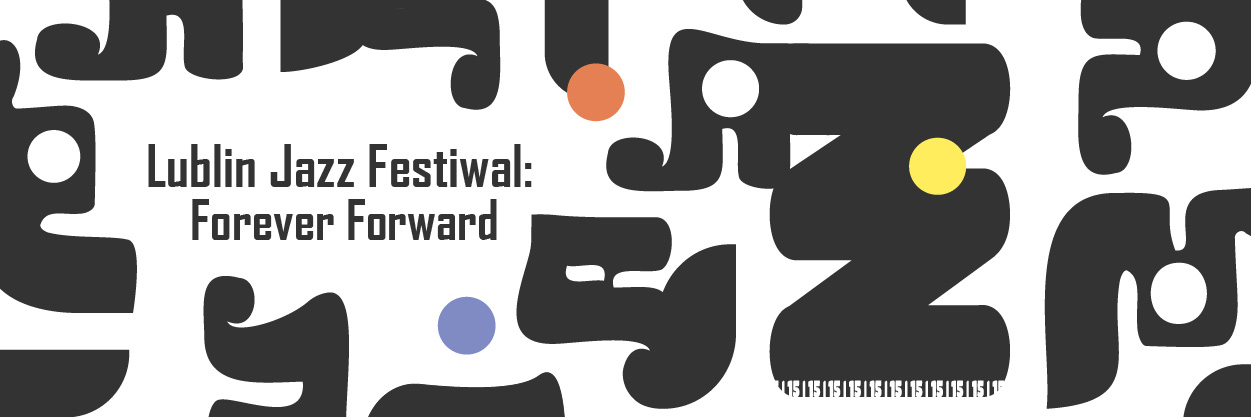I don't want to choose between composing and improvising - interview with Ben Stapp

We are talking to one of the most interesting instrumentalists of the young generation, the tubist Ben Stapp, about a joint album with Joe Morris and Stephen Haynes, his live in Portugal and the United States and we are also trying to find out what Theta Scales is.
How did it happen that you met Joe Morris and Stephen Haynes?
Ben Stapp: Stephen invited me to play in a brass quintet – a joint project with Steve Swell – during the summer of 2011 at the University of the Streets in NYC. I was subbing for Joe Daley. Herb Robertson (who I'd done a record with in 2007 with Alipio Neto's group including Michael T.A. Thompson, Ken Filiano for Clean Feed) was in the group, also the great Mark Taylor on French Horn. I knew Steve Swell from working in his Nation of We ensemble. It was a conventional brass quintet configuration but sounded nothing remotely close. Stephen wrote about the event in his blog. Later that year, Stephen asked me to participate in the new Improvisations series – curated by Joe Morris and Stephen Haynes. The concert was in Hartford (where Haynes lives) and our quartet included violinist Yasmine Azaiez. This was my first encounter with Joe Morris. Stephen continued to bring me up to Connecticut to play in different settings and, in 2013, included me in a new quintet with Joe, William Parker and Warren Smith. We performed at The Stone and at Firehouse 12 – where we recorded the Pomegranate album (New Atlantis Records.
What was the main idea for recording "Mind Creature Sound Dasein"?
BS: There were two main ideas that inspired Mind Creature Sound Dasein (MCSD). The first was my ongoing fascination with fiction and how narratives can be abstracted to create forms in music. This I had explored when I wrote the story to my opera Myrrha's Red Book. The second idea developed in 2015, as I prepared for a solo tuba show on at Cisco Bradley's Jazz Right Now Series curated by archivist/critic Clifford Allen. I had just finished reading the fascinating space opera trilogy, Light, by Jon Harrison. I created a set of twelve movements that represented certain ideas presented in the book. For the sound world, I chose to focus primarily on extended techniques of the tuba.
This synergy of fiction and form captured my imagination! I decided to write my first sci-fi novel: Mind Creature Sound Dasein. The idea was generative: create a narrative work that would serve as a basis for the development of new musical forms and performance/recording projects. The novel is densely packed with hidden meaning - specifically around forms in music, theta harmony, and an invented religion. The concept for the recording rose from the book and the CD shares the title - Mind Creature Sound Dasein. The ten titles on the album correspond to ten levels of consciousness propagated by a nefarious cult in the book. The eleventh track, Epilogue, is a commentary on this troubling spiritual journey. The sound world and forms of each track are based on specific extended techniques of the tuba. The listener may also understand what I am doing as language development leading to a new syntax reflective of the literary source point of the novel.
Are you more into composition or improvisation?
BS: That is a tough question. I think they both inform each other and I try to balance the two. Ultimately, I want those two worlds to seamlessly interact but I'm not there yet. I write through-composed pieces that are complex and layered. At the same time, I regularly improvise freely with musicians without any expectations. I love doing both. In Myrrha's Red Book there are some nice moments where these two ways of making music coexist. Recently, I've been working on forms and directions for guided improvisation using the 64 sound worlds drawn from MCSD that will allow me to more easily bridge the two strategies - improvisation and composition. Once I'm satisfied with building a set of directions for improvisers that don't require a conductor and allow everything from the composition to completely improvised to coexist, then I feel I will be writing and playing the music I want love in an integrated fashion - I won't have to choose between the two.
What are Theta Scales?
BS: I think of theta scales as the lost scales or hidden dimensions of traditional harmony. It takes a what-if statement concerning traditional theory and maps out a whole series of laws and conclusions. A lot of music theorists spend their time re-contextualizing music that already exists, laying out new perspectives, insights, and sacred geometry, which I admire. What I've done with theta scales is dropped in one misunderstanding in traditional harmony and created a new sound world from that. I think it is very similar to speculative fiction. Just like how someone can say, "What if this was true?" and then create a story around that. I think building things around a problem or question rather than reaffirming and evolving something that everyone already agrees on is more interesting for me at the moment. In the book, these theta scales allow the characters to jump between levels of consciousness and different dimensions. In the music theory, one can also jump in and out of traditional harmony through a set of steps. I cannot say specifically what the notes are or how it works until I record and release the CD that features them.
You've lived in Portugal and in United States. What you've learned there as a musician?
In Portugal, I found myself getting more and more involved in the experimental improvised music scene. Before Portugal, in the US and England, I was experienced in traditional jazz music and classical music, but the experimental scene was just a peripheral interest. I would say my perception of what music could be opened up while in Portugal. I learned a lot from Alipio Neto who was deep in that music scene - and still is in Brazil - and from hanging out at the Clean Feed record store where I was sometimes employed to cover the bass function on tuba with many of their artists. My in-store performance and meeting with Scott Fields was one of those transformative, eye-opening experiences.
What are your main influences in the past? Who is inspiring you nowadays?
In the past, I was very interested in the development of harmony and how composers played with tonal expectations and how motific development can generate form, especially in the work of Brahms and Schoenberg. My theory teacher at University of California Los Angeles, Paul Realy - a student of George Crumb - was a huge influence on me in these regards. Schoenberg was very methodic in his tonal explorations analyses, so my finishing studies were of his piece Transfigured Night, Op. 4. From there I did my own research and came up with my treatise on Micro-Functional Harmony which is not published but which I continue to use as part of my process.
Now I think more of sound worlds and different ways to develop form and directions for improvisations. Creating new language and a narrative world that generates ideas is a large part of my current interests. I'm more concerned now with finding inspiration by searching deeper and finding new meaning inside of things instead of searching outward and adding meaning. Both ways of working are similar, but the process is quite different. Some of my current and on-going sources of inspiration include Witold Lutoslawski (introduced to me from a class I took with John Corigliano), Anthony Braxton, Bill Dixon, Roscoe Mitchell, Henry Threadgill, and Butch Morris. I've learned a lot about Bill Dixon through my continued collaborations with Stephen Haynes. Talking with Joe Morris about his book, Perpetual Frontier, and playing with him as well as the development and preparation for this new recording have been recent sources of ideas and inspiration. I'm also checking out the most interesting and unconventional sounds that people are finding on their instruments, and there are so many amazing examples of that today. I love taking apart my tuba and instruments and finding other ways to recombine and generate sound.
What are your plans for the near future?
I have several projects I'm looking to do and they are all in the context of MCSD. One is a CD that focuses solely on the rhythmic explorations of an invented race of aliens; another focuses on creating 64 distinct tracts used for the 64 types of brainwaves used to induce dream and dimension exploration (in the novel and in real life); another is a CD based on Theta scales only; another is a set of folk songs from a anarchist group of alien slug worshippers coupled with religious songs from a digital nefarious cult that seeks to enslave these miscreants; and finally, the first of 10 operas that focus on different episodes in the book using my Collaborative Form Music ideas along with everything else. I'm also planning to do my first small group and solo tour next summer. Hopefully I can visit Poland!
- Aby wysyłać odpowiedzi, należy się zalogować.







